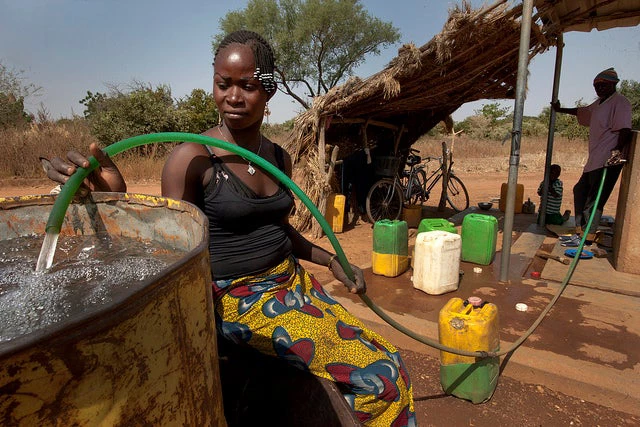
Non-Revenue Water (NRW) is water that is placed into a water distribution system and not billed because of leaks or commercial failures. Efficient management of NRW offers significant financial benefits to utilities while bringing economic and environmental benefits to societies around the world. Why, then, does NRW still present governments with such intractable problems?
It’s not for lack of proof or practice: The International Water Association has thoroughly explained the science behind water loss reduction, and countless grants have gone toward conducting training and providing guidelines to utilities and operators.
The management of NRW is difficult because it stems from a utility’s core functioning. It touches on utility practices in all major operational aspects such as water production and distribution, asset maintenance, managing the customer registers, and billings. The level of NRW, therefore, is a good indication of the state of a utility’s internal management and operations and the policy and incentive environment in which it operates.
Leaking buckets
A PPIAF study on The Challenge of Reducing NRW (2006) puts the global estimate of water losses at nearly 49 billion cubic meters each year. This loss would be enough to supply almost twice the number of people with unimproved access with clean water today. A USAID assessment of 18 African utilities, for example, estimates total NRW at 264 million cubic meters per year. These numbers portray urban utilities are leaking buckets. Investing funds into water production and the creation of new assets, without solving the issues at the heart of NRW, could empty the world’s bucket of water entirely.
What we see, when examining these areas, is that there are few incentives for efficiency. Too often, water tariffs do not reflect the real cost of delivery; public expenditures are rarely scrutinized; and utility management and staff are neither rewarded for avoiding waste nor penalized for creating it. Water service providers are also up against many constraints, notably chronic under-funding. As a result, although investing in NRW management makes financial sense in most cases, it may not happen, because certain actions -- such as rehabilitating networks, setting up monitoring and control systems, and installing billing and accounting programs -- all require motivation, know-how, and funds that may not be readily available to utilities.
Performance-based contracts (PBCs) could offer utilities a way to overcome these NRW-related hurdles. Many of the PBCs in emerging markets today are focused on tackling the backlog of NRW that results from the challenges above.
How performance-based contracts can help
PBCs are a form of sub-contracting that have three primary features:
- The remuneration of the contractor is paid against achievement of outcomes rather than inputs (and therefore, contractors take risk on the downside of not achieving the targets);
- Given the remuneration structure, the contractor will need to have the discretion on how the outcomes will be achieved, including the organization of teams and technology; and
- Ideally, contractors have a stake in the upside of exceeding the outcomes targets. PBCs on NRW management, or even on the resulting outcome of increasing continuity of service, focus on discrete activities, and so typically do not involve taking over operations of a utility or a public workforce by the public sector, with the political economy and practical challenges that the latter can bring.
Systematizing our learning on PBCs is an important step toward tailoring the solution to the problem. The new program, Developing Good Performance-Based Contract Practices in the Marketplace to Manage Non-Revenue Water, created by the World Bank Group, the Inter-American Development Bank, and the International Water Association, with PPIAF support, provides a platform to share transaction experiences and lessons so that a foundation of best practices can be built upon. Ultimately, the program will pave the way for shorter and more cost-effective preparation of PBC transactions and an increased number of market participants, while improving value-for-money of PBC activities in NRW management.
As we think about using PBCs to help utilities overcome the challenges of NRW, we are also considering ways to build the market itself: expanding the pool of suppliers, particularly at local levels, and improving the capability of utilities and governments to engage in cost-effective PBCs. After all, the 66% of the population that is expected to be living in urban areas over the next few decades are not all going to the capital city. [3] They will be in second tier cities for which NRW management is just as important and challenging.



Join the Conversation